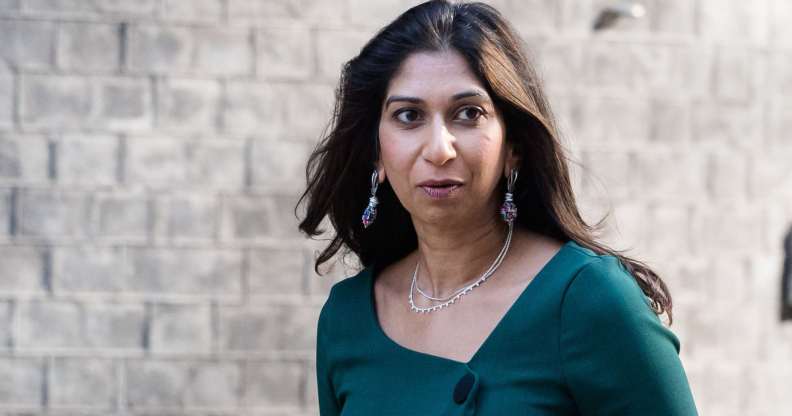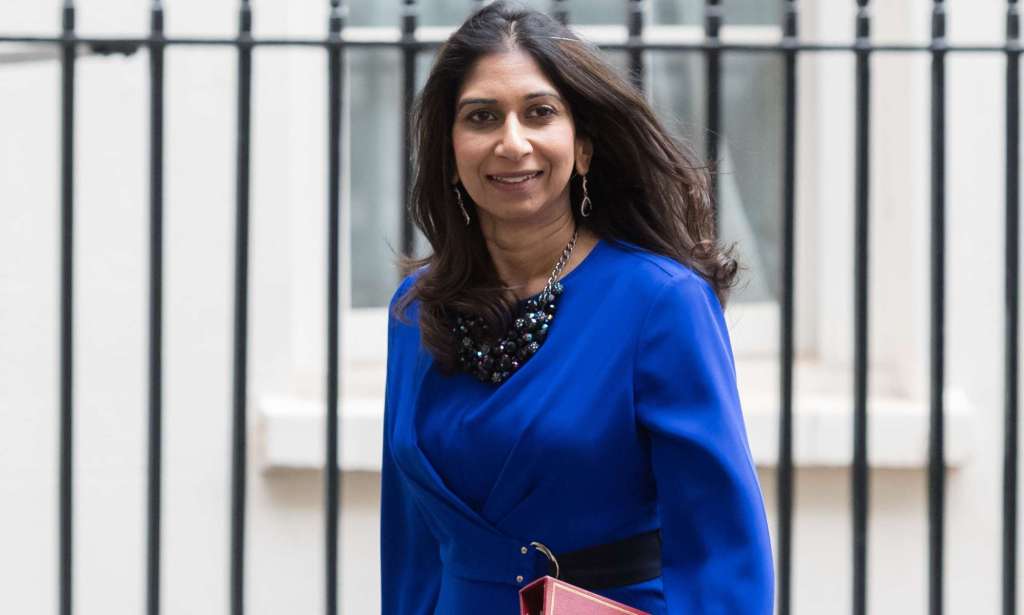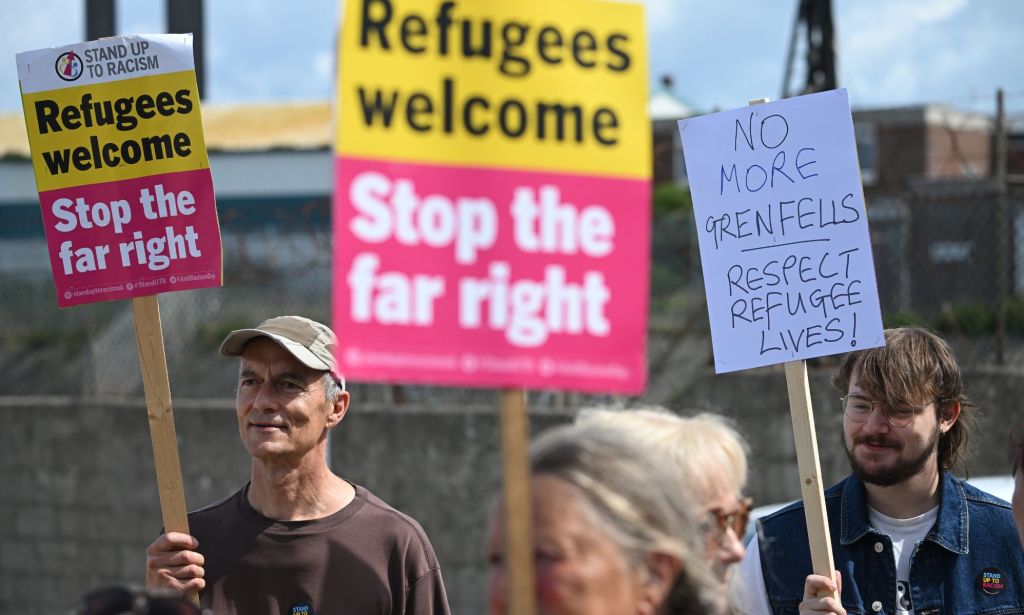Suella Braverman should listen to LGBTQ+ asylum seekers to truly understand why they flee

Braverman’s controversial comments about the LGBTQ+ community sparked uproar. (Getty)
Braverman's controversial comments about the LGBTQ+ community sparked uproar. (Getty)
Another day, another Suella Braverman controversy.
This time, the home secretary has landed herself in hot water over comments about LGBTQ+ asylum seekers. In a speech due to be delivered to the right-wing think tank American Enterprise Institute, in Washington DC – which was leaked ahead of time – Braverman will argue that people are seeking asylum out of fear of discrimination rather than actual persecution.
“Let me be clear, there are vast swathes of the world where it is extremely difficult to be gay, or to be a woman,” Braverman will say, according to a draft of the speech that was leaked to The Times.
“Where individuals are being persecuted, it is right that we offer sanctuary. But we will not be able to sustain an asylum system if, in effect, simply being gay or a woman and fearful of discrimination in your country of origin, is sufficient to qualify for protection.”
It’s an insulting argument, but a hardly surprising sentiment from a woman some people call Cruella.
Suella Braverman has worked overtime to realise her “dream” of having asylum seekers deported to Rwanda, and she and her fellow Tories have – unsuccessfully – tried to turn “stop the boats” into some kind of a sordid slogan.
LGBTQ+ people flee their homes out of necessity
What Braverman and her government colleagues don’t seem to realise is that behind their harmful rhetoric and inhumane legislation is an increasingly marginalised and maligned group of people who desperately need a new start in life.
Out of all of the people who arrive on the UK’s shores seeking asylum, just two per cent flee their homes because of their sexual orientation. They’re a small minority, but their experiences are as valid as those trying to escape war and political persecution.

I know that better than most people because I’ve had the chance to hear their stories first-hand. Over the past few years, I’ve interviewed many people who have been forced to flee their homes because they know they’re no longer safe. Some of them have told me through tears over a crackling phone line that their families threatened and beat them up when they found out who they really were.
LGBTQ+ Afghans have told me about the terror that took hold when the Taliban regained power. One man said he was burned and beaten for being gay.
Every one of these people has his or her own story, and each one’s outcome is unique.
I’ve been able to share the joy a person feels when they finally reach the UK or another western country, because we both know it’s their only chance to live authentically and freely.
I have fought back tears when I’ve received messages from people telling me they’ve been granted refugee status and that, for the first time, they have hope for the future.
For some, coming out as queer is an ongoing struggle, even when they’ve been granted asylum in a country where LGBTQ+ people are largely accepted and welcomed. But even for them, something as simple as wearing rainbow socks or going to a gay bar provides the burst of pride they need that will one day embolden them to be fully, openly themselves.
The threat of violence is never far for LGBTQ+ asylum seekers
Some have had happy endings, but not all.
I’ve also spoken to queer people who are languishing in refugee camps where they are constantly on high alert for homophobic or transphobic violence. Others have crossed the border into nearby countries only to discover that things are just as bad there. They live in hope that they will one day be granted asylum elsewhere so they can be open about who they are, without the fear of mutilation or murder.

And then there are the people who stop replying. I will probably never know whether they made it to safety or if they died along the way. Each of those cases hurts like a fresh wound, and I will carry their stories with me for life.
I wish Suella Braverman, PM Rishi Sunak and the rest of the Conservative front bench would sit down with just one of the many people I’ve had the privilege of speaking to and listen to their story. Only by hearing those lived experiences, can you truly understand what it’s like to be a lonely, closeted queer person who knows that coming out could put their life at risk.
I sometimes think, in moments of fantasy, that if everyone had the chance to talk to a refugee or asylum seeker, there would be no question about it: we would welcome everyone who needs protection because we would see that nobody travels all across the world in a small boat or in the back of a lorry for the fun of it.
But with a home secretary as short-sighted and unfeeling as Braverman, what hope do we really have?

